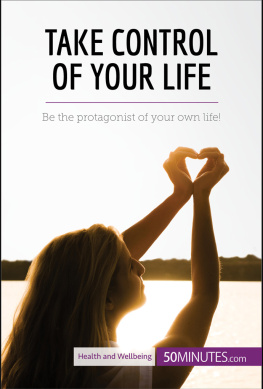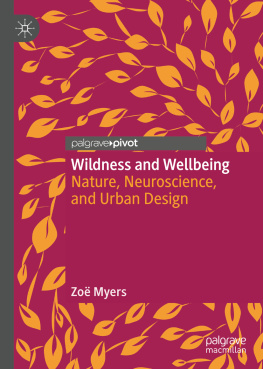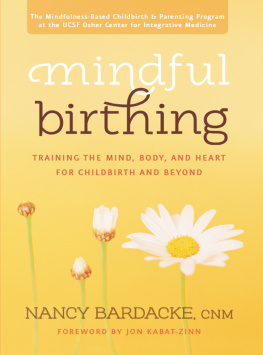Contents
To Sharon and Kaley
Foreword
BY D R . R ICHARD J. D AVIDSON
Today, an increasingly large percentage of the population has begun to notice the lack of emotional balance in their lives: They are stressed at work and find themselves moody and volatile. They feel less than optimal physically. They spend less time than they would like with their families, yet when they are with their spouse or children, the interaction is often marred by interpersonal discord. These same people are searching for strategies to help them become less stressed and calmer. If you are one of those people, Start Here will help you find the set of tools you need to begin making meaningful changes in your life.
The genius of Start Here is that it is not just a book. It presents a training program called Life Cross Training (LIFE XT) that contains specific exercises for your mind and body designed to help you improve your life and enable your sense of wellbeing to flourish. Start Here provides a wealth of helpful information grounded in contemporary scientific research. It offers additional resources for those wishing to probe specific areas more deeply and, most important, a program of concrete exercises you can use to help transform your everyday life and create a stronger and more enduring sense of happiness.
One of the many things I like about the approach of the LIFE XT program is that it is not limited to the ancient contemplative practices, such as meditation. While I myself have benefited enormously from such practices, it is clear that the other two pillars of happiness training contained within the LIFE XT approach are critically needed: movement and inquiry. Movement includes both aerobic and nonaerobic forms of exercise. The scientific evidence concerning the benefits of physical exercise, particularly for the brain, is now very robust and compelling, and the practical advice and recommendations in Start Here will be enormously helpful to those who have not yet incorporated regular physical activity into their routine.
The Inquiry piece of the LIFE XT training provides an important tool for questioning the validity and veracity of stressful thoughts. This practice has the power to unravel the many stressful stories that keep us from experiencing happiness: I have too much to do. My husband isnt there for me. I dont have enough.
The three foundational practices of LIFE XT (Meditation, Movement, and Inquiry) are intended to become part of a weekly routine; they require setting aside time and attention. The second part of the LIFE XT program consists of six Be and Do Stage practices. Unlike the first three practices, these practices are designed to cultivate qualities like presence, gratitude, compassion, engagement, relationships, and contribution. The recommendations contained in this section again derive from many different sources: some from the ancient wisdom traditions, some from positive psychology, and others from more rigorous neuroscientific research. As someone who knows this space both as a scientist and as a practitioner, I found the assembly of this wide range of material in a single locationpresented in a highly readable and practical formatto be very helpful.
The books foundation rests not only on ancient wisdom traditions but also on modern science. Important studies such as the recent findings on mind wandering by Matthew Killingsworth and Daniel Gilbert at Harvard University provide a useful framework for the average person to understand how these practices actually serve to rewire the brain in ways that decrease stress and increase overall wellbeing. This kind of information can be very helpful and inspiring as people begin to make positive changes in their lives.
The sources of insight that guide the recommendations set forth in Start Here do not emanate from a single tradition, a particular method, or a specific theoretical orientation. Instead, it is a comprehensive framework that combines the best practices from many different wisdom traditions, from modern science, and from philosophy, and applies them in a very practical program for improving everyday life. The result is an integrated set of tools that can be deployed in a simple way to enhance wellbeing.
For these reasons, I believe this book and the program that is presented will benefit anyone seeking to live with greater happiness. I urge you to investigate the application of the many simple practices that are offered up in this book to your daily life, and to stick with them and continue to implement them. It is only through regular practice that the brain will change, and modern science now clearly indicates that this can indeed happen.
May you find this book helpful and may you improve your life by adopting these practices.
Dr. Richard J. Davidson, William James and Vilas Professor of Psychology and Psychiatry at the University of Wisconsin; director of the Waisman Lab for Brain Imaging and Behavior and the Lab for Affective Neuroscience; founder and chair of the Center for Investigating Healthy Minds
THE OPEN SECRET
An Introduction to Life Cross Training
Theres a truth weve learned to embraceone that has changed our lives and led us to bring the idea of training wellbeing to thousands of people. We call this truth the Open Secret.
You likely already know this secret. Think about people you admire, those who seem like they have everything life has to offer: a beautiful home, a great family, and ongoing opportunities. From what you can see, they have it all.
Heres the secret: Scratch the surface of what looks like success, and chances are you will find a person who has experienced a mixture of highs and lows, moments of deep contentment along with moments of sadness, anger, anxiety, and fear. The fact is that while most of us project a polished facade, we all search for happiness, fulfillment, and joy as we work to navigate the challenges and obstacles that life brings us.
This is likely true of the people you admire. Its probably true of you. It is certainly true of us.
I am Eric Langshur.
For most of my adult life, I started each day with the same harrowing morning ritual: Wake up. Eyes open. Brain on. Then immediately, the assault of thoughts would begin:
What have I got to get done today? What balls am I in danger of dropping? What is Elizabeth thinking about what I said to her yesterday? I need to remember to call my dad. I should hurry or Im going to be late for work.
On and on... and on.
The experience was so normal to me that I wasnt even aware it was happening. Somewhere around my fortieth birthday, though, I did start to notice this unrelenting stream of thoughts, and I realized, This voice in my head is exhausting me.
Clearly, this wasnt the kind of joy-filled life I once thought I would be living when I achieved success, and this realization of my incessant inner dialogue wasnt anything like the kind of waking up epiphany that the mystics describe. Instead, becoming acutely aware of my thoughts, worries, and anxieties only intensified the ever-present undercurrent of stress in my life. As a corporate executive and serial entrepreneur, I knew how to build businesses and manage large organizations. But, I began to realize, I didnt know how to manage my own mind.
This jarring insight set me on a decade-long search to understand how to be happier. I sought wisdom by reading the great spiritual texts: the Old and New Testaments, the Quran, the Bhagavad Gita, and the texts of Taoism and Buddhism. These in turn sparked an interest in philosophy, turning me toward the Greeks (Plato, Aristotle, Epictetus), the Romans (Marcus Aurelius, Seneca), the modern Europeans (Nietzsche, Goethe, Kierkegaard), and the American Transcendentalists (Thoreau, Emerson).






